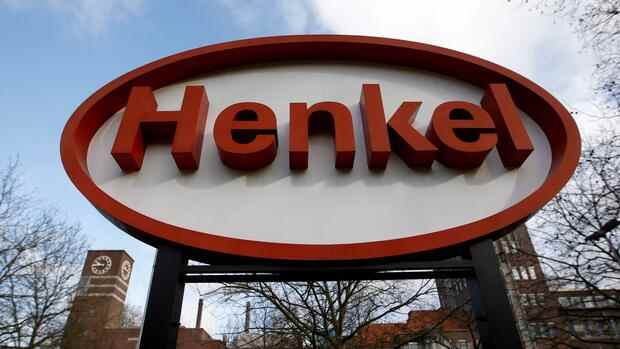The consumer goods group wants to buy back shares for up to one billion euros.
(Photo: Reuters)
Dusseldorf The consumer goods giant Henkel pulls the ripcord in view of the sluggish development in the cosmetics business. The cosmetics and detergents business is to be merged into one division “in order to sustainably strengthen the growth and margin profile of the consumer goods business,” the Düsseldorf-based group announced on Friday. Jobs should also be eliminated. The management wants to start talks with the employees. Henkel will soon also part with brands in the cosmetics sector: “The first measures in the beauty care portfolio will be implemented in the course of 2022.” The costs for the conversion are to be specified at a later date.
On the stock exchange, investors initially reacted to the announcement and the business figures with sales: Henkel shares fell significantly in the morning and were listed with a minus of more than seven percent at 73.20 euros.
The new structure creates a “broader foundation to further optimize and actively shape our portfolio and bring it to a higher growth and margin profile,” explained Henkel CEO Carsten Knobel, who has been in office since January 2020: “We also want significant Achieve synergies and gains in efficiency.” Against the background of the restructuring, Knobel issued new medium to long-term goals. For organic sales growth, he is now aiming for three to four percent – previously it was two to four percent. The adjusted EBIT margin should be around 16 percent. In addition, Henkel is targeting growth in adjusted earnings per preferred share (EPS) in the mid to high single-digit percentage range. In addition, Knobel announced a share buyback with a volume of up to one billion euros.
Last year, the manufacturer of Pritt, Persil and Schwarzkopf achieved sales of a good 20 billion euros thanks to flourishing business in its adhesives division. The adjusted return on sales was around 13.4 percent – Henkel had already lowered the targets for this key figure in 2021 and most recently announced 13.5 percent. The cosmetics sector achieved organic growth of around 1.4 percent, well behind adhesives and detergents. Analysts had repeatedly criticized that Henkel’s cosmetics business was too small and less profitable compared to competitors such as L’Oreal.
Top jobs of the day
Find the best jobs now and
be notified by email.
For 2022, Henkel expects organic sales growth for the Group in the range of two to four percent. The adjusted return on sales is expected to be between 11.5 and 13.5 percent – well below the medium-term target.
Competitor Beiersdorf had announced that sales would increase organically by eight to ten percent for 2021 as a whole. The Hamburg company wants to compensate for higher prices for raw materials with savings and price increases for their own products. The operating return on sales (EBIT margin) is expected to be around 11.8 percent, for 2022 CFO Astrid Herrmann had expressed confidence that a slight increase in the EBIT margin could be achieved.
More: Own online shops are rarely profitable – why the cosmetics giants still rely on them
